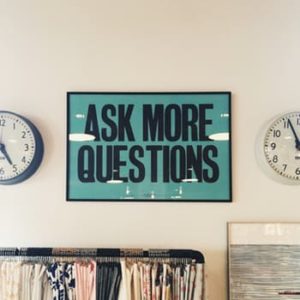 Those of you who have been following me for years might remember my post from 2014 about hating spoilers.
Those of you who have been following me for years might remember my post from 2014 about hating spoilers.
Since then I’ve been paying attention to how social media – especially Twitter – has been changing the rules about if, whether, and when it’s okay to share spoilers.
It was especially interesting to see how people reacted to The Handmaid’s Tale a few months ago because of how much faster that show was released in the U.S. than it was in other parts of the world.
Canada was always one or two episodes behind the United States depending on which day of the week you were on. Other countries were even further behind us.
People in the States were sharing spoilers before or right after the latest episode there ended. Even mainstream news sites were leaking plot twists as they discussed what had currently happened and what was going to happen next. I had to mute the hashtags for that show and avoid reading all news articles about it until I’d finished the whole series.
While I still believe that it’s rude to share spoilers for a show that has just aired, not everyone agrees with me and not everyone who does agree with me has the same rules about how to go about sharing them after a certain amount of time has passed.
The Old Rules
This varied according to which parts of the Internet you spent time in, of course, but I remember the old rules being as follows:
- Always put a spoiler warning before sharing anything that mentioned even mild plot twists.
- Don’t discuss the latest episode of your favourite show with people who haven’t seen it yet unless they tell you they don’t mind.
- When in doubt, don’t mention it.
I do not remember the mainstream media releasing spoilers back then the way they do now. To be fair, I don’t know if that’s because I watched fewer shows at that point or if the rules have since changed for the media as well.
The Controversy

If cats knew what spoilers were, they’d disapprove of them.
I’m going to be doing some generalizing and simplifying here for the sake of brevity, but people who have an opinion on this issue seem to fall into one of two camps.
The first camp believes that everything is up for discussion the second a show has finished airing in their time zone. While some of them do warn everyone about their discussion of spoilers ahead of time, many others don’t bother to mention it at all.
Interestingly enough, my own mother belongs in this group. If I read a book or watch a movie that she hasn’t tried yet, she genuinely doesn’t mind hearing spoilers about it. This blows my mind sometimes, but I’m much less cautious about discussing how stories end with her than I am with almost everyone else I know.
The second camp is against all spoilers. We want to be warned of potential spoilers well in advance so we can avoid them. We often also want everyone to use the official hashtags for that show or movie so that we can mute them before any of the plot twists are revealed.
The New Rules
- Always use the appropriate hashtags when discussing your favourite shows on social media.
- Give people fair warning if you will be sharing spoilers.
- Find likeminded people to discuss (or avoid) spoilers with.
- Respect the rights of others to make different decisions.
- When in doubt, don’t mention it.
From what I’ve seen, the Internet hasn’t yet come to a conclusion about how long everyone should wait before spoiler tags are no longer necessary.
I take a conservative approach and add spoiler tags to almost everything. Just because a book was released a few decades ago doesn’t mean that everyone has read it. While I do occasionally share spoilers about old movies, TV shows, and books, I warn people first in case they don’t want to know what happened.
It’s going to be interesting to see how all of this plays out over the next few years. Is giving spoiler warnings for everything no matter when it was released the best way to handle it? I honestly don’t know. This is something I do as a courtesy for others, but I don’t think it’s currently realistic to expect everyone to follow this rule given how unwilling they are to wait even a few days to dissect current shows.
With that being said, I would like to see people become more aware of the fact that their favourite shows have global audiences and that not every country or time zone gets the latest episode simultaneously.

 I have a confession to make today. Listening in on other people’s conversations is one of my favourite things to do, and I don’t think any artistic person should feel the least bit guilty about it.
I have a confession to make today. Listening in on other people’s conversations is one of my favourite things to do, and I don’t think any artistic person should feel the least bit guilty about it. Life Would be Dull Without Storytellers. I believe that poets, musicians, writers, painters, and other creative folks fulfill a vital purpose for our species. We take note of those strange, beautiful, difficult, or thought-provoking moments in life that many other people miss and reinterpret them in all kinds of wonderful ways.
Life Would be Dull Without Storytellers. I believe that poets, musicians, writers, painters, and other creative folks fulfill a vital purpose for our species. We take note of those strange, beautiful, difficult, or thought-provoking moments in life that many other people miss and reinterpret them in all kinds of wonderful ways. This is a repost from my old blog. I will be back on Thursday with new material.
This is a repost from my old blog. I will be back on Thursday with new material. 
 This is a repost from my old blog. I will be back next week with new material.
This is a repost from my old blog. I will be back next week with new material.  Years ago someone asked me what kind of science fiction books I like to read.
Years ago someone asked me what kind of science fiction books I like to read. Do They Think You’d Like It?
Do They Think You’d Like It?